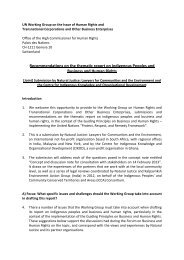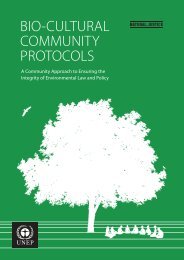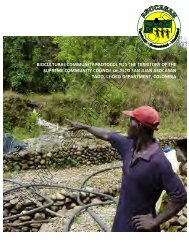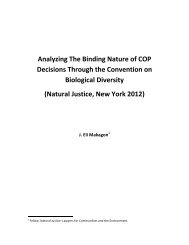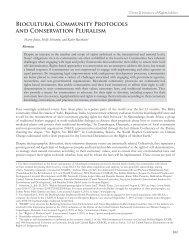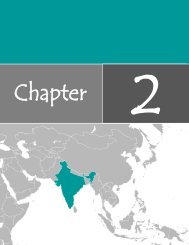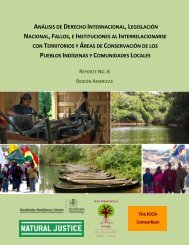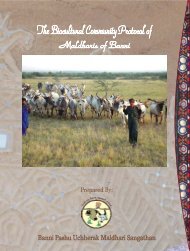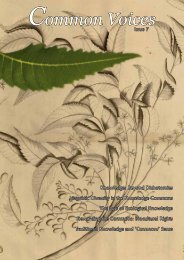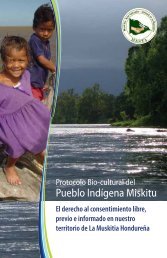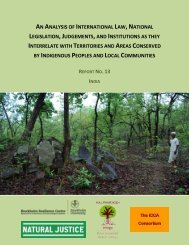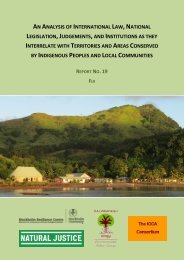English - Natural Justice
English - Natural Justice
English - Natural Justice
You also want an ePaper? Increase the reach of your titles
YUMPU automatically turns print PDFs into web optimized ePapers that Google loves.
Documentation, research and database support: Various aspects of ICCAs are studied andreported on and ICCAs form part of one or more databases. Government, civil society,scientific institutions, and others, including the facilitation of initiatives by peoples orcommunities themselves, could undertake such activities. At the global level, the UNEPWorld Conservation Monitoring Centre has initiated an ICCA Registry (www.iccaregistry.org).The recognition study highlights a number of countries that have databases relevant toICCAs, including: Kenya, Namibia, Bolivia, the Philippines, Fiji, England, Spain, Canada, andIndia.Social recognition and support: Indigenous peoples and local communities are grantedawards, have access to media coverage and platforms to tell their stories, and so on. Thesecould be granted by government, civil society, or others. A number of internationalinstitutions also provide such recognition, notably the Equator Initiative.In Spain, the Mancomún de la Costa de Fuerteventura is a traditional local pastoralgovernance institution devoted to the regulation of extensive goat livestock breeding onFuerteventura (one of the Canary Islands) – a sustainable activity that supports the lastpopulation of the endemic Egyptian Vulture subspecies in the world. It was awarded theMedalla de Oro de Canarias 2011 (Canary Islands Golden Medal Award) from the regionalgovernment. Other countries that provide social recognition and support include India andthe Philippines.Networking support: Relevant peoples and communities are facilitated to (or themselvesinitiate ways to) exchange information and ideas with others, join or establish largerfederations or associations, and synergize with others in various other ways. While much ofthis is led by civil society and by peoples or communities themselves, governments havefacilitated this in some countries as well.In Australia, the IPA Program convenes annual national or regional IPA Managers Meetingsto enable managers and others associated with planning and managing IPAs to exchangeexperiences, ideas and concerns. These events have been essential to nurturing thedevelopment of the concept and practice of IPAs over the last 15 years. Other opportunitiesfor knowledge-sharing among Indigenous peoples involved in environmental managementare the bi-annual National Land and Sea Management Conference, largely funded by theAustralian Government, and regional Indigenous ranger conferences and workshops hostedby a diversity of Indigenous organizations from time to time.Advocacy support: Civil society undertakes lobbying, direct actions and other methods toinfluence government policy and programmes, or facilitates such action by peoples orcommunities themselves.Many of these forms of recognition and support intersect with each other and areinterrelated with legal recognition. For instance, in many countries, social recognition,networking and advocacy have been crucial in achieving legal and policy recognition of ICCAs.



